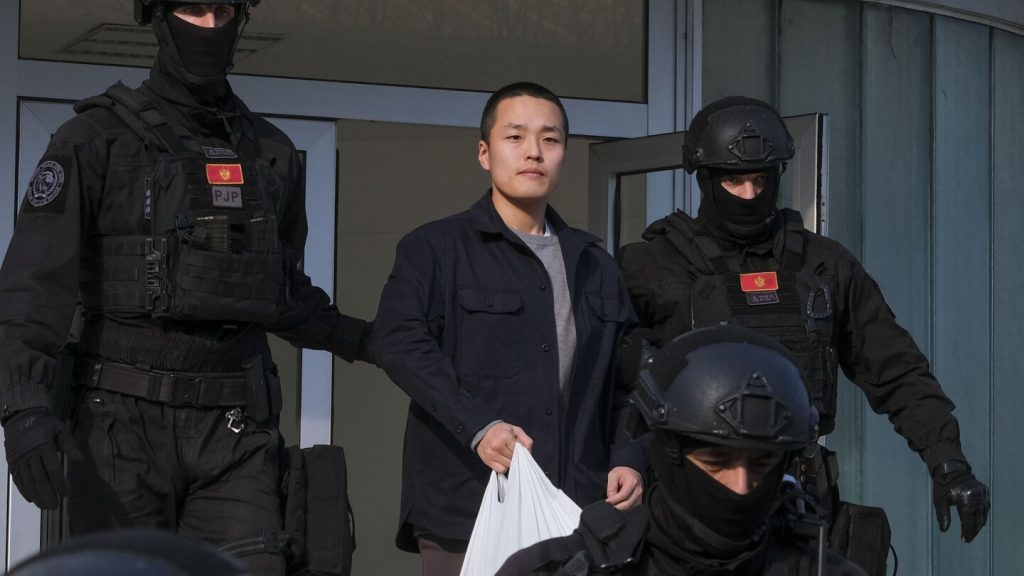The extradition of Do Kwon, known as the “cryptocurrency king”, from Montenegro to the United States has been finalized, following a decision by the Montenegrin justice ministry to accept a U.S. request. Despite a plea from South Korea for his handover, Montenegro decided to extradite him to the U.S. Kwon, the founder of the Singapore crypto firm Terraform Labs, was handed over to FBI officers at the Podgorica Airport border crossing. This marks the end of a months-long legal saga surrounding Kwon, with both South Korea and the U.S. seeking his extradition.
Kwon, along with another South Korean individual, was arrested in Montenegro in March 2023 while attempting to travel to Dubai using fake Costa Rican passports. He had previously served a prison term in Montenegro for using a fake passport. In the U.S., Kwon faces charges of fraud brought by federal prosecutors in New York in connection with a $40 billion crash of Terraform Labs’ cryptocurrency. This crash had significant consequences for retail investors worldwide. Kwon and five others associated with Terraform were wanted for allegations of fraud and financial crimes related to the collapse of the firm’s digital currencies in May 2022.
The main cryptocurrency involved in the case was TerraUSD, a stablecoin designed to be pegged to stable assets like the dollar to prevent price fluctuations. However, the value of TerraUSD and its sister currency Luna plummeted below the $1 peg, resulting in a loss of approximately $40 billion in market value for investors. This financial turmoil caused widespread negative impacts within the cryptocurrency market and raised concerns about the stability and regulation of digital currencies. The extradition of Kwon to the U.S. signifies a significant development in the legal proceedings surrounding the collapse of Terraform Labs and the implications for individuals involved in the cryptocurrency industry.
Montenegro’s decision to extradite Kwon to the United States highlights the complexities of international legal cooperation in cases involving financial crimes and cryptocurrencies. The refusal to hand him over to South Korea indicates the prioritization of the U.S. request and the ongoing diplomatic considerations between the countries involved. The extradition process underscores the global nature of financial crimes and the challenges faced by law enforcement agencies in addressing these issues effectively. Kwon’s extradition sets a precedent for future cases involving crypto-related crimes and emphasizes the importance of international collaboration in investigating and prosecuting individuals involved in fraudulent activities within the digital asset space.
The resolution of Kwon’s extradition case marks a significant step in holding individuals accountable for financial misconduct within the cryptocurrency industry. The legal proceedings surrounding Terraform Labs’ collapse demonstrate the potential risks and vulnerabilities present in the digital currency market and the need for robust regulatory measures to protect investors and prevent fraudulent activities. As the case moves forward in the U.S. legal system, the details of Kwon’s alleged involvement in the cryptocurrency crash will be further examined, shedding light on the complexities of prosecuting financial crimes in the digital age. The outcome of this high-profile extradition case will likely have broader implications for the cryptocurrency industry and regulatory efforts to address illicit activities within the sector.















